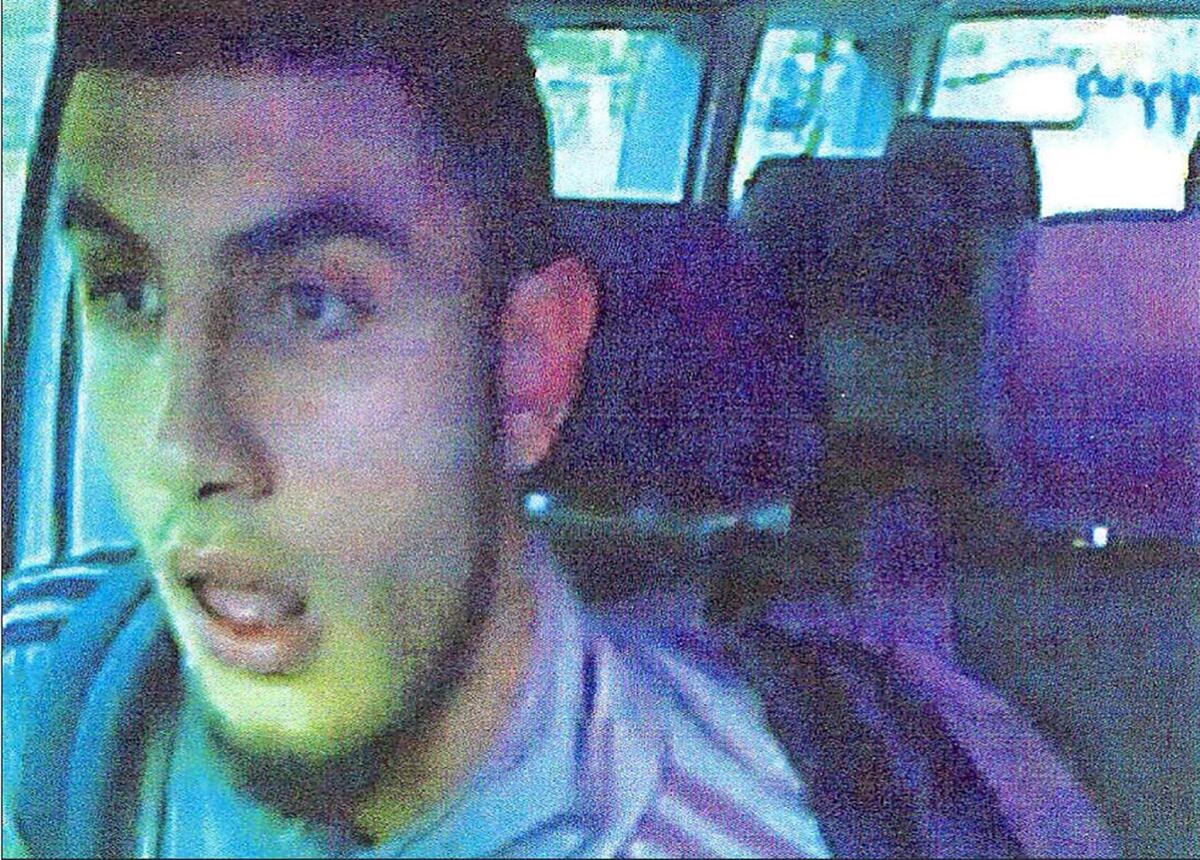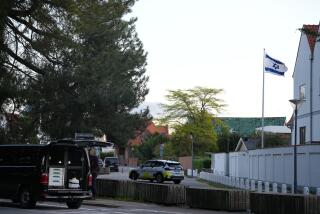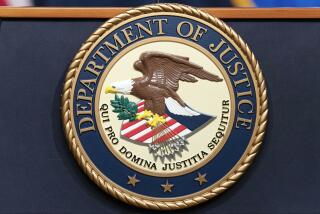Copenhagen attacks: Gunman may have been inspired by Islamic State

- Share via
Reporting from London — The gunman believed to have carried out two deadly attacks in Copenhagen was on the intelligence service’s radar and may have been inspired by Islamic State, Danish officials said Sunday.
The suspected killer was fatally shot by police early Sunday, hours after attacks on a free-speech debate and at a synagogue in the capital left two men dead and five police officers injured.
Authorities did not immediately release the name of the suspected gunman, but described him as a 22-year-old Danish-born man.
He may have been “inspired by militant Islamist propaganda issued by IS [Islamic State] and other terror organizations,” Jens Madsen, the head of Denmark’s security service, told reporters.
Police are investigating whether he had spent time in Iraq or Syria, and whether he was trying to imitate the attacks in Paris last month on the satirical magazine Charlie Hebdo.
Authorities said he was known to police because of his criminal past and gang-related activity, according to local news media.
Armed police officers stormed an Internet cafe Sunday near the site where the suspected gunman was shot, and two people were reportedly taken away.
Prime Minister Helle Thorning-Schmidt described the killings as a “cynical act of terror.” Denmark has “lived through some hours which we will never forget,” she said.
French Interior Minister Bernard Cazeneuve arrived in Copenhagen on Sunday, and U.S. and European leaders were quick to condemn the violence and offer their assistance to Danish authorities.
State Department spokeswoman Jen Psaki said that the United States had offered to help “in any way needed,” and that “the people of the United States stand united with the people of Denmark and all others who defend the universal right of freedom of speech and stand against anti-Semitism and bigotry in all its forms.”
Meanwhile, Israeli Prime Minister Benjamin Netanyahu urged “mass immigration” of Jews to Israel from Europe, and his Cabinet approved a $45-million plan to encourage emigration of Jews from France, Belgium and Ukraine.
“Jews have been murdered again on European soil only because they were Jews, and this wave of terrorist attacks — including murderous anti-Semitic attacks — is expected to continue,” he said at the start of Sunday’s Cabinet meeting. “Jews deserve protection in every country, but we say to Jews, to our brothers and sisters: Israel is your home.”
The Copenhagen gunman first struck before 4 p.m. Saturday, firing an automatic weapon through the windows of the Krudttonden cultural center. It was hosting a free-speech debate featuring Swedish cartoonist Lars Vilks, who has received death threats for drawing pictures of the prophet Muhammad.
Vilks, 68, was rushed into a storage room for protection and escaped unharmed, but film director Finn Norgaard, 55, who was at the event, was killed after being shot at close range.
Three police officers were wounded.
Vilks described hearing “bang, bang” sounds and believes he was the intended target.
“At first it seemed so unreal,” he told Britain’s ITV News. “Then the bodyguards reacted and I understood it was an attack.”
About 1 a.m., a man guarding a synagogue during a bat mitzvah celebration was shot to death and two more police officers were injured.
Police believe the same gunman was responsible. The second slain man was identified as Dan Uzan, 37.
“He was a great guy. Every time we met, he was full of energy and power,” said Danish-born Israeli basketball player Chanan Colman, who knew Uzan, according to the Israeli news site Ynet.
Police circulated grainy images of the suspected gunman. Officials say he was killed near the Norrebro subway station after opening fire on officers as he returned to an address that police had under surveillance.
Boyle is a special correspondent. Special correspondent Batsheva Sobelman in Jerusalem contributed to this report.
More to Read
Sign up for Essential California
The most important California stories and recommendations in your inbox every morning.
You may occasionally receive promotional content from the Los Angeles Times.










